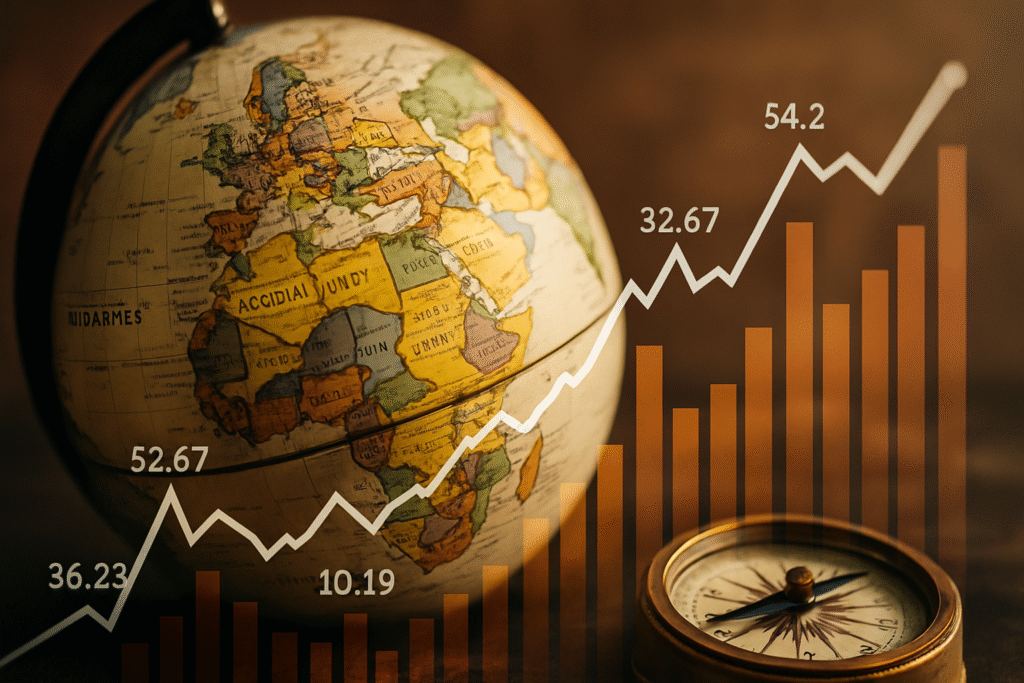Investors often rely on economic indicators, corporate earnings, and technical charts to inform their decisions. Yet one critical element is frequently overlooked: geopolitics. From wars and elections to trade agreements and diplomatic tensions, global events can rapidly alter market dynamics, reshape industries, and even trigger long-term shifts in capital allocation.
In today’s interconnected world, understanding geopolitical risks is not optional—it’s essential. Here’s why smart investors are integrating geopolitical analysis into their strategies and how you can do the same.

How Geopolitics Impacts Markets
Geopolitical developments have direct and indirect effects on global markets:
- Energy Prices: Conflicts in oil-producing regions like the Middle East or sanctions on countries like Russia can send crude prices soaring, affecting inflation, transportation, and energy stocks.
- Supply Chains: Trade disputes or wars can disrupt global supply chains, hurting companies that rely on international components or exports.
- Currency Volatility: Political instability or central bank actions tied to government policy can cause wild swings in currency exchange rates.
- Sectoral Shifts: Certain industries thrive or suffer under geopolitical pressures. For example, defense stocks tend to rise during conflicts, while travel stocks often decline.
Historical Examples of Geopolitical Influence
Let’s look at a few real-world examples to understand the scope of geopolitical influence on investments:
- Russia–Ukraine War (2022): Energy stocks rallied globally while European equities faced downturns due to fears of energy shortages and military escalation.
- Brexit (2016): UK equities, real estate, and the British pound experienced immediate volatility, followed by longer-term regulatory changes that impacted cross-border business.
- U.S.–China Trade War (2018–2020): Tariffs and supply chain reshuffling affected tech, agriculture, and manufacturing sectors worldwide.
These events serve as reminders that a sound investment strategy must be adaptable to political realities.
Strategies for Managing Geopolitical Risk
Here are practical ways to build resilience in your portfolio:
1. Diversification Across Geographies
Avoid home-country bias. Invest across multiple regions to hedge against country-specific risks.
2. Thematic Investments
Use ETFs or funds that focus on defensive sectors (e.g., defense, energy, utilities) during times of uncertainty.
3. Gold and Commodities
Commodities like gold often act as safe havens during geopolitical turmoil. They can buffer your portfolio against equity volatility.
4. Stay Informed
Track global news with financial context. Reliable sources like the Council on Foreign Relations Global Conflict Tracker provide geopolitical risk assessments that investors can use proactively.
5. Tail Risk Hedges
Advanced investors may use options strategies, such as put spreads or volatility index (VIX) trades, to protect against black swan events.
Geopolitical Trends to Watch in 2025 and Beyond
Some current geopolitical developments worth watching include:
- Tensions in the Taiwan Strait
- Middle East instability and OPEC+ decisions
- European Union policy shifts post-Russia sanctions
- U.S. elections and fiscal policy direction
- Rise of de-dollarization initiatives in BRICS countries
These aren’t just news headlines—they’re potential market movers.
Invest with a Global Lens
Geopolitics is no longer a niche concern for political analysts—it’s a vital variable in modern investing. Those who ignore it risk exposure to sudden losses, while those who pay attention can find opportunities in chaos.
Incorporate geopolitical awareness into your financial literacy. The world won’t stop moving, but with the right strategy, your investments won’t be left behind.


